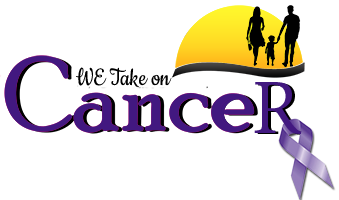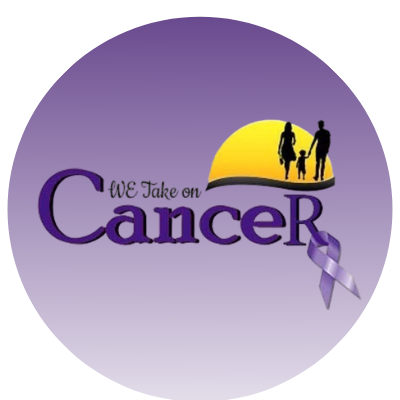Do you ever experience a painful, burning sensation in your chest, especially after eating certain foods? If so, it may be heartburn caused by acid reflux, which occurs when acid from your stomach backs up into your esophagus. Most of us experience heartburn occasionally, and it’s generally not a serious concern.
However, persistent acid reflux, or gastroesophageal reflux disease (GERD), can irritate the lining of the esophagus and perhaps the tissues of other respiratory and digestive organs. Over time, GERD may increase your risk of certain cancers.
“The stomach is immune to the effects of acid because it has a special lining,” explains Baran Sumer, M.D., associate professor with the Simmons Cancer Center at UT Southwestern, in a telephone interview with HealthCentral.
However, the esophagus does not have that lining. The acidity of stomach acid can be very low, Dr. Sumer says — “It’s like battery acid” — and if reflux backs up from the stomach into the esophagus, it’s very irritating.
Normally, says Dr. Sumer, the gastroesophageal sphincter and cricopharyngeal muscle in the neck clench down to prevent acid from going into the esophagus.
“These mechanisms aren’t perfect, and when they don’t function properly, you can get acid reflux in the back of the throat, your pharynx, your esophagus,” Dr. Sumer says. “People experience this as heartburn.”
Reflux disease and esophageal cancer
“There is a proven association between GERD and esophageal cancer,” says Milan Amin, M.D., associate professor in the Department of Otolaryngology—Head and Neck Surgery at NYU Langone, in a telephone interview with HealthCentral. “This is well established. It’s not a huge risk, but it is a concern because it’s difficult to treat esophageal malignancies.”
Years of esophageal exposure to stomach acid can lead to Barrett’s esophagus, a disease of the lower esophagus. Barrett’s esophagus is a risk factor for adenocarcinoma of the esophagus, a type of cancer.
“Once you have Barrett’s esophagus, there’s about a 1 percent per year conversion rate to malignancy,” says Dr. Amin.
People with long-term reflux disease should be screened periodically for esophageal malignancies, he says.
Reflux disease and cancers of the head and neck
While the link between GERD and esophageal cancer is well established, the data associating GERD with head and neck cancers is less conclusive. Most studies do show an increase in head and neck cancers in people with long-term reflux disease. However, it’s a small association, and there’s no evidence there is a cause-and-effect relationship.
“If reflux disease produces cancer in the esophagus, what happens if it escapes the esophagus and gets into the throat or a portion of the lungs?” says Dr. Amin. These structures are less protected against acid and enzyme exposure. “There’s conjecture that damage in the throat all the way up to the nose from acid reflux can produce a host of diseases, both benign and malignant.”
The most recent study, published in JAMA Otolaryngology Head and Neck Surgery in December 2017, found adults 66 and older who had respiratory and neck cancers were more likely to have GERD. The strongest association was between GERD and cancer of the larynx (voice box).
“The question is: Is there a causative effect?” Dr. Amin says. “Patients with cancer tend to be smokers, be overweight, and have other medical conditions that also raise their risk for reflux. Is there a third factor that plays a role as well? Some studies have taken out these co-morbidities [co-existing conditions] and have still found an association [between GERD and head and neck cancers].”
Dr. Amin says the vast majority of head and neck malignancies are associated with tobacco use, but that’s changing, too.
“There’s been a recent trend in the last decade of more and more head and neck malignancies that are non-smoking related,” he says. “They may be related to HPV, but not all of them. These patients tend to be younger, healthier, non-smokers. We’re not sure what the cause is.”
Should you be treated if you have reflux disease?
Dr. Amin will treat patients who have reflux disease if it’s causing symptoms or if there’s a risk of another immediate health concern, but there are some risks to keep in mind.
“There’s now some about concern about treating reflux disease aggressively because treating it with PPIs [proton pump inhibitors] is now associated with all sorts of other risks,” he says.
Different studies have shown an association between PPIs and dementia, kidney disease, heart disease, stroke and decreased bone density, which increases hip fractures among women who are long-term PPI users, he says.
“We’re more careful prescribing these medications,” Dr. Amin says. “Typically, once you start these medications, patients are almost never taken off. “
Dr. Amin wonders whether these are the patients eventually developing diseases from taking too many reflux disease medications.
“We’re more cautious now,” he says.
Diet and lifestyle changes do seem to help control reflux disease. If you have heartburn, reduce your food intake before bedtime and avoid or limit certain foods, such as alcohol, chocolate, tomatoes, caffeine, and fatty foods, which are associated with reflux. Eat smaller meals earlier in the evening and don’t lie down for two to three hours after eating.
Additionally, Dr. Amin says, some people with severe reflux find relief by lifting the head of their bed. If you are a side-sleeper, he recommends sleeping on your right side for better drainage to the stomach.
“Those lifestyle changes may very well also help decrease the risk of certain head and neck tumors,” Dr. Sumer says, although “the overall risk is very small.”
Article written by Kathleen Hall and originally appeared on heatlhcentral.com
Image:Istock


